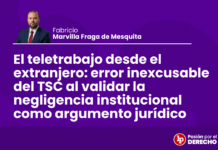Fundamento destacado: 47. El Tribunal considera que, en principio, los Estados tienen un interés legítimo en excluir a ciertos infractores de la profesión de contador público. Sin embargo, el Tribunal también considera que, a diferencia de otras condenas por delitos graves, una condena por negarse a llevar el uniforme militar por motivos religiosos o filosóficos no puede implicar deshonestidad ni vileza moral que pueda menoscabar la capacidad del infractor para ejercer esta profesión. Por lo tanto, la exclusión del solicitante por no ser una persona apta no estaba justificada. El Tribunal toma nota del argumento del Gobierno de que quienes se niegan a servir a su país deben ser castigados adecuadamente. No obstante, también observa que el solicitante cumplió una pena de prisión por negarse a llevar el uniforme militar. En estas circunstancias, el Tribunal considera que la imposición de una sanción adicional al solicitante fue desproporcionada. De lo anterior se desprende que la exclusión del solicitante de la profesión de contador público no perseguía un fin legítimo. En consecuencia, el Tribunal considera que no existía ninguna justificación objetiva y razonable para no tratar al solicitante de manera diferente a otras personas condenadas por un delito grave.
[Traducción de Lp]
47. The Court considers that, as a matter of principle, States have a legitimate interest to exclude some offenders from the profession of chartered accountant. However, the Court also considers that, unlike other convictions for serious criminal offences, a conviction for refusing on religious or philosophical grounds to wear the military uniform cannot imply any dishonesty or moral turpitude likely to undermine the offender’s ability to exercise this profession. Excluding the applicant on the ground that he was an unfit person was not, therefore, justified. The Court takes note of the Government’s argument that persons who refuse to serve their country must be appropriately punished. However, it also notes that the applicant did serve a prison sentence for his refusal to wear the military uniform. In these circumstances, the Court considers that imposing a further sanction on the applicant was disproportionate. It follows that the applicant’s exclusion from the profession of chartered accountants did not pursue a legitimate aim. As a result, the Court finds that there existed no objective and reasonable justification for not treating the applicant differently from other persons convicted of a serious crime.
[Idioma original]
CASE OF THLIMMENOS v. GREECE
(Application no. 34369/97)
JUDGMENT
STRASBOURG
6 April 2000
In the case of Thlimmenos v. Greece,
The European Court of Human Rights, sitting as a Grand Chamber composed of the following judges:
Mr L. WILDHABER, President,
Mrs E. PALM,
Mr L. FERRARI BRAVO,
Mr L. CAFLISCH,
Mr J.-P. COSTA,
Mr W. FUHRMANN,
Mr K. JUNGWIERT,
Mr M. FISCHBACH,
Mr B. ZUPANČIČ,
Mrs N. VAJIĆ,
Mr J. HEDIGAN,
Mrs W. THOMASSEN,
Mrs M. TSATSA-NIKOLOVSKA,
Mr T. PANŢÎRU,
Mr E. LEVITS,
Mr K. TRAJA,
Mr G. KOUMANTOS, ad hoc judge,
and also of Mrs M. DE BOER-BUQUICCHIO, Deputy Registrar,
Having deliberated in private on 1 December 1999 and 15 March 2000,
Delivers the following judgment, which was adopted on the last-mentioned date:
PROCEDURE
1. The case was referred to the Court in accordance with the provisions applicable prior to the entry into force of Protocol No. 11 to the Convention for the Protection of Human Rights and Fundamental Freedoms (“the Convention”)[1], by the European Commission of Human Rights (“the Commission”) on 22 March 1999 (Article 5 § 4 of Protocol No. 11 and former Articles 47 and 48 of the Convention).
2. The case originated in an application (no. 34369/97) against the Hellenic Republic lodged with the Commission under former Article 25 of the Convention by a Greek national, Mr Iakovos Thlimmenos (“the applicant”), on 18 December 1996. The applicant alleged that the refusal of the authorities to appoint him to a post of chartered accountant on account of his criminal conviction for disobeying, because of his religious beliefs, the order to wear the military uniform was in breach of Articles 9 and 14 of the Convention and that the proceedings he had instituted in the Supreme Administrative Court in this connection were not conducted in accordance with Article 6 § 1 of the Convention. In his observations submitted on 20 October 1997 in reply to the observations of the Greek Government (“the Government”) on the admissibility and merits of the case, he also complained of a violation of Article 1 of Protocol No. 1.
3. The Commission declared the application partly admissible on 12 January 1998. In its report of 4 December 1998 (former Article 31 of the Convention), it expressed the opinion that there had been a violation of Article 9 of the Convention taken in conjunction with Article 14 (twentytwo votes to six); that it was not necessary to examine whether there had been a violation of Article 9 taken on its own (twenty-one votes to seven); and that there had been a violation of Article 6 § 1 (unanimously)[1].
4. On 31 March 1999 a panel of the Grand Chamber determined that the case should be decided by the Grand Chamber (Rule 100 § 1 of the Rules of Court). Mr C. Rozakis, the judge elected in respect of Greece, who had taken part in the Commission’s examination of the case, withdrew from sitting in the Grand Chamber (Rule 28). The Government accordingly appointed Mr G. Koumantos to sit as an ad hoc judge (Article 27 § 2 of the Convention and Rule 29 § 1).
5. The applicant and the Government each filed a memorial.
[Continúa…]
![Se vulnera el derecho a la motivación si el fiscal superior no se pronuncia sobre todos los agravios invocados en el recurso de elevación (principio de congruencia recursal) [Exp. 01574-2024-PA/TC, f. j. 10]](https://img.lpderecho.pe/wp-content/uploads/2023/03/tribunal-constitucional-fachada-exterior-tc-1-LPDerecho-218x150.png)
![Si el interesado solicita la actuación de medios de investigación al borde del fin de la investigación preparatoria y no se trata de una obtención, identificación o ubicación obtenida en último momento y por causas no imputables a él, ya no será posible su actuación [Apelación 320-2024, Apurímac]](https://img.lpderecho.pe/wp-content/uploads/2025/10/MAZO-LIBROS-BIBLIOTECA-LPDERECHO-218x150.jpg)
![La prohibición del acceso a la conclusión y terminación anticipada, establecida en el art. 5 de la Ley 30838 para delitos como el de violación sexual de menor de edad, quebranta el derecho a la igualdad ante la ley [Casación 2197-2022, Cajamarca]](https://img.lpderecho.pe/wp-content/uploads/2024/06/violacion-sexual-a-nina-LPDERECHO-218x150.jpg)

![JNE establece que personas con sentencia condenatoria pueden postular a la presidencia de la República al cumplirse 10 años de cumplida la pena, siempre que no tengan pendiente la reparación civil y hayan obtenido la declaración judicial de rehabilitación [Resolución 0085-2026-JNE, 2.21-2.24]](https://img.lpderecho.pe/wp-content/uploads/2026/02/BANNER-ARTICULO-CONSTITUCIONAL-19-218x150.jpg)

![Ley Orgánica del Registro Nacional de Identificación y Estado Civil (Ley 26497) [actualizada 2025]](https://img.lpderecho.pe/wp-content/uploads/2025/05/Ley-organica-del-registro-nacional-de-identificacion-y-estado-civil1-LPDERECHO-218x150.jpg)










![[Balotario notarial] Revocación e irrevocabilidad del poder (artículo 153 del Código Civil)](https://img.lpderecho.pe/wp-content/uploads/2025/09/PODERES-IRREVOCABLES-RE-LECTURA-LPDERECHO-218x150.jpg)
![[VIVO] Clase modelo sobre la comunicación en el proceso oral civil. Llena el formulario para recibir las diapositivas](https://img.lpderecho.pe/wp-content/uploads/2026/02/BANNER-ALDA-VITES-LPDERECHO-218x150.jpg)

![[Balotario notarial] El notario público: funciones, competencia, derechos, responsabilidades y cese](https://img.lpderecho.pe/wp-content/uploads/2025/09/NOTARIO-PERU-FUNCIONES-LPDERECHO-218x150.jpg)
![Trabajadores con licencia sin goce de haber pueden recibir beneficios de la negociación colectiva [Informe Técnico 000314-2025-Servir/GPGSC]](https://img.lpderecho.pe/wp-content/uploads/2025/03/SERVIR-LPDERECHO-218x150.jpg)


![El trabajador que solicita la nulidad del despido no se encuentra liberado de su carga probatoria, sino que tiene la obligación de aportar indicios razonables del despido [Casación Laboral 18431-2023, Cajamarca]](https://img.lpderecho.pe/wp-content/uploads/2024/04/despido-vacaciones-desacanso-horas-libres-feriado-trabajador-formal-LPDerecho-218x150.jpg)

![JNE exhorta al Congreso de la República a uniformizar la legislación con relación a los impedimentos vinculados con la situación jurídica penal de los ciudadanos que pretendan postular como candidatos en elecciones generales y subnacionales, pues el ordenamiento jurídico no es claro ni coherente [Resolución 0085-2026-JNE, 2.25-2.28]](https://img.lpderecho.pe/wp-content/uploads/2026/02/BANNER-ARTICULO-CONSTITUCIONAL-18-218x150.jpg)
![Reglamento de organización y funciones de la Junta Nacional de Justicia [Resolución 011-2026-P-JNJ] JNJ - Junta Nacional de Justicia - LP](https://img.lpderecho.pe/wp-content/uploads/2021/06/JNJ-Junta-Nacional-de-Justicia-LP-218x150.png)
![Lineamientos para la atención de consultas en Servir [Resolución 000020-2026-Servir-PE]](https://img.lpderecho.pe/wp-content/uploads/2024/05/servir-servidor-trabajador-laboral-LPDerecho-218x150.jpg)

![Modifican Ley General de Aduanas: transportista podrá optar por multa en lugar de comiso ante hallazgo de mercancía no manifestada [Decreto Legislativo 1711]](https://img.lpderecho.pe/wp-content/uploads/2025/09/ADUANA-DELITO-ADUANERO-LPDERECHO-218x150.jpg)
![Código de Responsabilidad Penal de Adolescentes [actualizado 2026]](https://img.lpderecho.pe/wp-content/uploads/2024/08/CODIGO-DE-RESPONSABILIDAD-PENAL-DE-ADOLESCENTES-DECRETO-LEGISLATIVO-1348-ACTU-LPDERECHO-218x150.jpg)

![Ley de Delitos Informáticos (Ley 30096) [actualizada]](https://img.lpderecho.pe/wp-content/uploads/2024/08/ley-de-delitos-informaticos-ley-30096-actualizada-LPDERECHO-218x150.jpg)
![Código Civil peruano [actualizado 2026]](https://img.lpderecho.pe/wp-content/uploads/2024/05/VENTA-OFICIAL-CODIGO-CIVIL-2024-LPDERECHO-218x150.jpg)
![Código Procesal Penal peruano [actualizado 2026]](https://img.lpderecho.pe/wp-content/uploads/2024/02/VENTA-CODIGO-PENAL-BANNER-POST-TAPA-DURA-LPDERECHO-218x150.jpg)






![[VÍDEO] ¿Quieres postular a la Fiscalía? Estas son las preguntas que hacen en las entrevistas](https://img.lpderecho.pe/wp-content/uploads/2021/10/postular-fiscalia-preguntas-entrevista-LP-218x150.jpg)

![EXP. N.° 0022-2009-PI/TC LIMA GONZALO TUANAMA TUANAMA Y MÁS DE 5000 CIUDADANOS SENTENCIA DEL TRIBUNAL CONSTITUCIONAL En Lima, a los 09 días del mes de junio de 2010, el Tribunal Constitucional en sesión de Pleno Jurisdiccional, con la asistencia de los magistrados Mesía Ramírez, Beaumont Callirgos, Vergara Gotelli, Landa Arroyo, Calle Hayen, Eto Cruz y Álvarez Miranda, pronuncia la siguiente sentencia con los fundamentos de voto de los magistrados Vergara Gotelli y Landa Arroyo, que se agregan. ASUNTO Demanda de Inconstitucionalidad interpuesta por Gonzalo Tuanama Tuanama, en representación de más de 5000 ciudadanos contra el Decreto Legislativo N.° 1089. DEMANDA Y CONTESTACIÓN a) Demanda contra el Decreto Legislativo N.° 1089, que regula el Régimen Temporal Extraordinario de Formalización y Titulación de Predios Rurales Con fecha 01 de julio de 2009, se interpone demanda de inconstitucionalidad contra el Decreto Legislativo N.° 1089, que regula el Régimen Temporal Extraordinario de Formalización y Titulación de Predios Rurales, publicada en el diario oficial El Peruano el 28 de junio de 2008. Los demandantes refieren que “'sin entrar al fondo del contenido de la norma”, ésta fue promulgada sin efectuar ninguna consulta previa e informada a los pueblos indígenas, tal como lo ordena el Convenio 169 de la Organización Internacional De Trabajo (OIT), afectándose con ello los derechos fundamentales de los pueblos Indígenas, como el derecho a la consulta previa y el derecho colectivo al territorio ancestral, establecidos en los artículos 6, 15, 17 del mencionado convenio. De igual forma, expresan que no se tomaron en cuenta los artículos 19, 30 y 32 de la Declaración de las Naciones Unidas sobre los Derechos de los Pueblos Indígenas (DNUDPI) aprobado por la Asamblea General de la Organización de Naciones Unidas. Alegan que con dicha norma se afectan otros derechos establecidos en el Convenio N.° 169, como el derecho sobre las tierras de los pueblos indígenas (artículos 13 al 19), en el considerando que no se tomaron en cuenta medida que garanticen la protección de sus derechos de propiedad y posesión. Refieren que se afecta también el derecho a la libre determinación de las comunidades nativas, previsto en el artículo 17 del Convenio, que declara el respeto de sus formas tradicionales de transmisión de sus territorios. Por último, alegan que se estaría vulnerando lo previsto en el artículo 19 del Convenio en cuanto se afecta el derecho al desarrollo de políticas agrarias adecuadas para los pueblos indígenas. [Continúa...] Descargue la resolución aquí](https://img.lpderecho.pe/wp-content/uploads/2023/01/Logo-LP-con-fondo-guinda-LPDERECHO-1068x561.png)


![Aunque el demandante en un proceso de prescripción adquisitiva no obtenga un resultado favorable, todos los años de duración del proceso no impedirán por sí mismos que dicho periodo en que el demandante continuó en posesión sea considerado como uno de posesión pacífica para un nuevo proceso de prescripción adquisitiva que decida iniciar después [Casación 4968-2021, Lima Este]](https://img.lpderecho.pe/wp-content/uploads/2024/04/casa-vivienda-propiedad-posesion-divorcio-separacion-bienes-herencia-desalojo-civil-mazo-balanza-LPDerecho-218x150.jpg)
![Declaran fundado recurso de queja por denegatoria de casación de Melissa Klug y ordenan que se eleve el expediente principal a sala suprema [Queja por denegatoria de casación 1944-2025, Lima]](https://img.lpderecho.pe/wp-content/uploads/2024/06/melisa-l%C2%BFklug-y-jerfferson-farfan-LPDERECHO-324x160.jpg)

![Código Penal peruano [actualizado 2026]](https://img.lpderecho.pe/wp-content/uploads/2024/05/VENTA-CODIGO-PENAL-LPDERECHO-100x70.jpg)


![Trabajadores con licencia sin goce de haber pueden recibir beneficios de la negociación colectiva [Informe Técnico 000314-2025-Servir/GPGSC]](https://img.lpderecho.pe/wp-content/uploads/2025/03/SERVIR-LPDERECHO-324x160.jpg)

![Se vulnera el derecho a la motivación si el fiscal superior no se pronuncia sobre todos los agravios invocados en el recurso de elevación (principio de congruencia recursal) [Exp. 01574-2024-PA/TC, f. j. 10]](https://img.lpderecho.pe/wp-content/uploads/2023/03/tribunal-constitucional-fachada-exterior-tc-1-LPDerecho-100x70.png)
![[Balotario notarial] Revocación e irrevocabilidad del poder (artículo 153 del Código Civil)](https://img.lpderecho.pe/wp-content/uploads/2025/09/PODERES-IRREVOCABLES-RE-LECTURA-LPDERECHO-100x70.jpg)
![Si el interesado solicita la actuación de medios de investigación al borde del fin de la investigación preparatoria y no se trata de una obtención, identificación o ubicación obtenida en último momento y por causas no imputables a él, ya no será posible su actuación [Apelación 320-2024, Apurímac]](https://img.lpderecho.pe/wp-content/uploads/2025/10/MAZO-LIBROS-BIBLIOTECA-LPDERECHO-100x70.jpg)
![Declaran fundado recurso de queja por denegatoria de casación de Melissa Klug y ordenan que se eleve el expediente principal a sala suprema [Queja por denegatoria de casación 1944-2025, Lima]](https://img.lpderecho.pe/wp-content/uploads/2024/06/melisa-l%C2%BFklug-y-jerfferson-farfan-LPDERECHO-100x70.jpg)
![Trabajadores con licencia sin goce de haber pueden recibir beneficios de la negociación colectiva [Informe Técnico 000314-2025-Servir/GPGSC]](https://img.lpderecho.pe/wp-content/uploads/2025/03/SERVIR-LPDERECHO-100x70.jpg)




